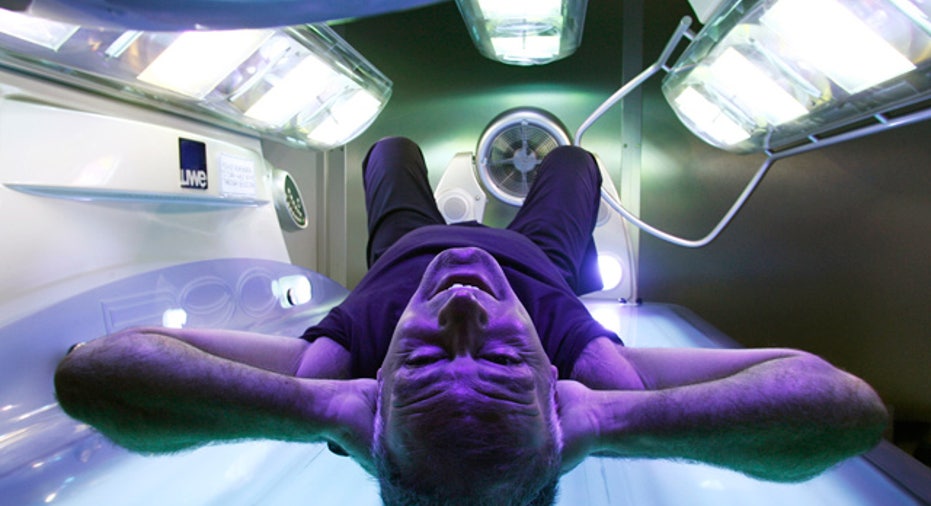Doctors Want Indoor Tanning Illegal for Minors

Minors may have a harder time paying for indoor tanning these days, after a 10% tax was imposed on the industry last year. But if one group has its way, soon they may be banned from the bulbed beds altogether.
This week, the American Academy of Pediatrics announced it is pushing for a policy to ban tanning for minors across the country. The World Health Organization and the American Academy of Dermatology are already lobbying for such a ban. John Overstreet, executive director of the Indoor Tanning Association, said he believes the indoor tanning industry is under assault.
“I think if these people have their way it would be the end of tanning. Between the recession, people paying tax to tan, there are millions out of business and local economies—it’s a bad combination,” Overstreet said. “If you look at the issue closely, the policy makers don’t agree once they hear what these people are calling for.”
Overstreet said arguing for such a ban is part of a higher debate about government’s role.
“As a 17-year-old in New Jersey you can drive a car, get married, have children, get contraceptives and can terminate a pregnancy without your parent’s knowledge, but you can’t get a suntan? We are talking about a suntan, so isn’t a parent in a better position to decide what is best for their children, instead of government?,” said Overstreet.
Lead policy author Sophie Balk, attending pediatrician at the Children’s Hospital at Montefiore, said tanning is still very popular amongst teens, and many don’t understand the health hazards linked to indoor tanning.
“Studies have shown that going to a salon under UV rays raises your risk of skin cancer,” Balk said. “Melanoma is the least common [form of cancer] but is the most likely to be serious. Fortunately cancer isn’t common in young people, but melanoma is a common cancer in young people.”
Bottom line, the ban isn’t to enact more government regulation on teens or families, Balk said, but instead to protect children from the dangers of tanning.
“We want to protect them from these risks, like smoking cigarettes. There should be laws on the books about underage tanning,” Balk said. “No state bans under-18 tanning, but we are looking for an under-18 ban unless a doctor says it is medically necessary.”
The recession and tax on tanning have clearly hurt the industry, Overstreet said, estimating that in the past three years 20% of tanning salons have shut down.
“We have seen a big decline nationwide. Part of it is the recession, because these businesses are dependent on low-wage earning people in their twenties,” he said. “Put a 10% tax on top of that, with the federal government taking 10% of profits and putting nothing back into it, it takes away customers.”
Overstreet said there is no consensus in the scientific community regarding ultra violet lighting and skin damage.
“They acknowledge you need sunshine and vitamin D, and that kids need to be in the sun more,” he said. “Millions and millions of people do it [indoor tanning] without ill effects. Any case of cancer is one case too many, but the majority of people do it without consequence. There are clear benefits to it as well that aren’t discussed.”
While there is indeed a nutritional need for vitamin D in one’s diet, Balk said as a pediatrician she encourages getting this nutrient in healthier forms, including incidental sun exposure, foods and vitamins.
“There are so many ways to feel good about yourself without harming yourself. We try to encourage young people to feel good about themselves in other ways and love the skin they are in,” she said. “You may think having tan skin is healthy, but it causes skin damage, damage to DNA and the cancer risk is high.”



















